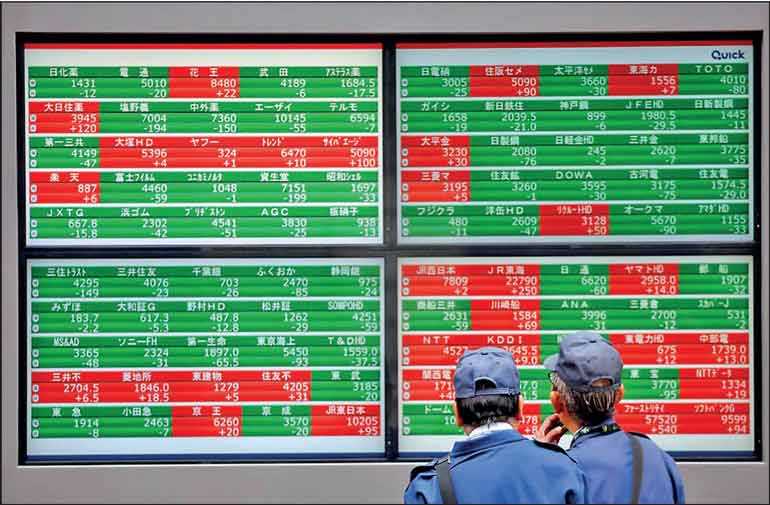Thursday Feb 26, 2026
Thursday Feb 26, 2026
Wednesday, 3 April 2019 00:00 - - {{hitsCtrl.values.hits}}

LONDON (Reuters): Global markets’ fast start to the year continued on Tuesday as world shares inched to a six-month high, Brent oil neared $70 a barrel for the first time since November and the dollar showed renewed signs of strength.
Some brightening of the global industrial mood – at least in China and the United States – had to compete with another dour US retail sales report, Britain’s broken Brexit plans and turbulence in Turkey, but it seemed to be enough.
European bourses shook off an early wobble to climb for a third day, while the S&P 500 looked set to add another few points to its best start to a year since 1998 as the MSCI world did the same. Europe was led by a near 1% jump in London’s FTSE 100 which was lifted by a 0.6% weaker pound after the UK Parliament failed once again on Monday to find any alternative to Prime Minister Theresa May’s Brexit divorce deal.
May was hunkered down in hours of cabinet meetings with her Senior Ministers on Tuesday to plan her next moves, but it seemed more in hope than expectation and EU officials warned again of a ‘no-deal’ crash out for the UK.
It also meant investors stuck with UK Gilts, and safe-haven German bonds, negative yields notwithstanding, in the bond markets despite a pop back higher in key US yields in recent days.
Earlier, MSCI’s broadest index of Asia-Pacific shares outside Japan ended up 0.2% and at a seven-month high after also rallying more than 1% in the previous session.
Chinese bluechips scored a 10-month high, leapfrogging Colombia to the top of the leaderboard of world share markets, while Australian shares gained 0.4% after the Aussie dollar dropped following a meeting of the country’s central bank.
The RBA held interest rates steady and highlighted the strength of employment, showing no immediate inclination to echo the outright dovish tone of some of its global peers.
Nevertheless it highlighted “downside risks for the global growth environment” and with elections coming soon, markets were betting the RBA will ultimately be forced to ease its rates, if only to stop the Aussie dollar from rising.
The other big shift taking place was in oil markets where prices hit fresh 2019 highs after a US official said on Monday that Washington was considering more sanctions on Iran and a key Venezuelan export terminal halted operations.
US crude futures traded at $61.90 per barrel, up 0.5% on the day while Brent futures were eyeing $70 a barrel for the first time since November at $69.19.
The dollar index, which measures the US currency against a basket of rival currencies, rose as much as 0.3% to 97.430 which left the euro at $1.12, the yen at 111.37 and the pound worth $1.3030.
In emerging markets, gains in MSCI’s EM share index were capped at 0.25%, after currency volatility in countries such as Turkey and South Africa that were under pressure from political tension and weak local manufacturing.